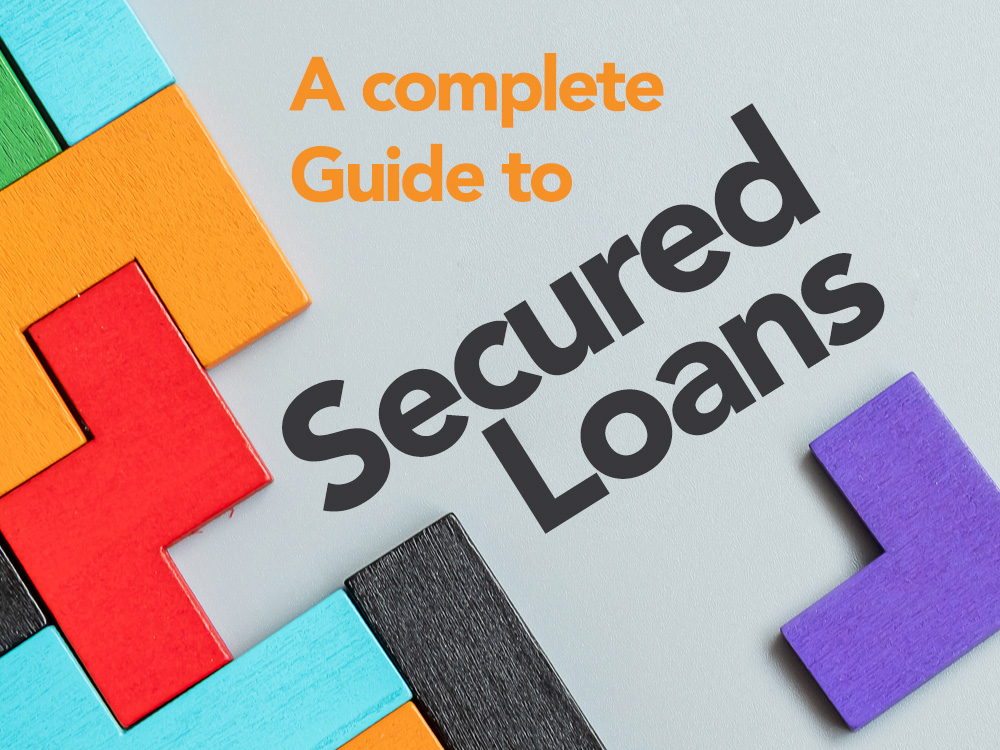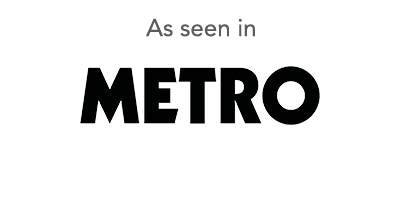On this page
Secured Loans What is a secured loan? What's the difference between a secured loan and an unsecured loan? Who can get a secured loan? How do secured loans work? What happens if I miss a repayment or I can't repay my secured loan? Where can you get a secured loan? Is a bridging loan a type of secured loan? What's the difference between secured loans and bridging loans? Pros and Cons of Secured Loans How much could I borrow with a secured loan? What credit score is needed for a secured loan? Are secured loans easier to get? Do secured loans help your credit score? Types of secured loans Can I transfer a loan secured against a property to another property? Can you get a secured loan with bad credit? Will it affect my mortgage? Are business loans secured or unsecured? Common FAQs about Secured LoansSecured Loans
For those who own an asset, such as property, secured loans are a common option to borrow money in the UK. A secured loan is a type of loan that uses property or other assets, such as your home or vehicle as security - also known as collateral.

What is a secured loan?
You can borrow money via secured loans, also known as homeowner loans, home loans, or second-charge mortgages, by pledging your house as "security" or "collateral." Secured loans are typically for larger amounts than you'd borrow using a personal loan, which is usually unsecured.
Secured loans on property are usually in the form of a second charge mortgage that sits behind an existing mortgage lender, so whilst it's similar to a 1st charge mortgage, the key difference between the two is the priority of the repayment of the loan. The lender with the first charge takes priority over the lender with the second charge mortgage. This means that if the borrower defaults, the second charge mortgage lender takes more risk as they have to wait for the 1st charge lender to be repaid before they recoup their money.
What's the difference between a secured loan and an unsecured loan?
Your property or any other asset isn't used as collateral for an unsecured loan, often known as a personal loan. Unsecured loans are often riskier for lenders because there is no collateral they can use to collect on if you can't pay them back. Therefore, to be authorised for an unsecured loan, you usually need to have a strong credit score, as this helps lenders understand that you're likely to pay back what you owe.
When you take out an unsecured loan, you'll agree to specific terms for repayment, including an interest rate and how long you'll have to pay the debt back, just as when taking out a secured loan. Another form of unsecured credit is credit cards, which are sometimes known as revolving credit because you borrow money and pay it back each month.
Who can get a secured loan?
Anybody over 18 who owns a suitable asset can apply for this type of loan. However, you must have enough equity in your asset and meet other criteria set out by lenders - such as income requirements and credit score - before being allowed access to funds.
How do secured loans work?
Simply put, you'll pay back what you owe plus interest by making predetermined monthly instalments, similar to other kinds of loans. Depending on the loan you choose, the interest rate is determined as a percentage of the amount you owe and can either be fixed or variable. You won't lose your asset as long as you make the monthly payments on schedule and in full.
People access secured loans for many different purposes, but the most common uses are raising money for home improvements, raising cash quickly or consolidating other debts.
What happens if I miss a repayment or I can't repay my secured loan?
Missing the repayment of your loan is called defaulting and can have serious implications for you. When you default on a secured loan, the lender has the legal power to seize your asset. Your lender may then sell your asset against your will to collect the money you owe them. Whilst this is a worst-case scenario, most reputable lenders will want to help you if you're experiencing financial difficulties, but it requires you to be proactive by getting in touch with the lender as soon as you find you're having trouble making your payments.
Your credit report will likely reflect any default, which can lower your credit score and make it more difficult for you to borrow money in the future and use certain services.
Where can you get a secured loan?
Secured loans are available from banks, building societies and other alternative finance providers. Shopping around for the best rate is important to ensure you get the best deal for your needs.
Is a bridging loan a type of secured loan?
Yes, a bridge loan is a secured loan. In the UK, bridging loans are typically secured on property. There are differences though between bridging loans and secured loans.
What's the difference between secured loans and bridging loans?
There are four big differences between secured loans and bridging loans.
Term length: Firstly, the term length of a bridging loan is no more than 2 years and typically only between 3 to 12 months. Bridging loans are designed to solve an immediate gap in financing that will be resolved usually through a sale of property or via longer-term refinancing. Secured loans are a longer-term solution with average term lengths of 5 years, but they can be as long as 35 years.
Repayment plan: Secondly, the repayment mechanism of the bridging loan, which is also known as the exit strategy, must be clear and viable before a lender would consider offering the bridging loan. The borrower has to be able to pay off the bridging loan when it reaches maturity.
Interest: Thirdly, the typical interest for a bridging loan is either retained or rolled up. Both options offer the borrower the freedom of no monthly repayments. Instead, the loan and the interest are repaid at the end of the loan term. Whilst it's possible to choose a serviced interest bridging loan option whereby the borrower pays the interest monthly, this isn't usually desirable for the borrower because the reason for them seeking the bridging loan in the first place is often a lack of available funds to achieve their immediate goals.
Credit history: Lastly, bridging loan lenders are more concerned with the asset being used as security to validate the bridging loan than your creditworthiness. The reason why they can overlook a poor credit rating is that a mix of factors mitigates their risk of losing their capital. The short nature of the loan, the equity in the asset being used as security and the viable exit strategy.
Pros and Cons of Secured Loans
The main advantage of taking out a secured loan Vs. an unsecured loan is that it typically offers lower interest rates than unsecured loans because of the added security provided by the asset being used as collateral. This means you can borrow larger sums over a longer term without paying higher monthly payments.
On the downside, taking out a secured loan can be riskier than getting an unsecured one because if you fail to keep up with repayments, your valuable asset can be taken away from you. This is why it's essential to ensure that you can keep up with all your payments before taking out a secured loan.
How much could I borrow with a secured loan?
This is a commonly asked question and largely depends on the available equity in the assets the borrower is willing to use as security. In short, the more available equity you have in a property, the more a loan provider is willing to lend.
What credit score is needed for a secured loan?
When taking out a secured loan in the UK, one of the most important factors is your credit score. For lenders, this provides information about how likely you are to pay back the money you borrowed and helps them decide whether or not they will offer you a loan.
Generally speaking, you will need a good credit score to be accepted for a secured loan. This means that if you have an excellent credit rating, getting approved for a loan should be easier. However, if your credit score is slightly lower than average, then it could still be possible for you to take out a loan - although the interest rate may be higher than usual to account for any additional risk associated with lending to someone with a lower credit rating.
When applying for a secured loan, it's important to make sure that you check your credit score beforehand so that you know where you stand. This will help give you an idea of how likely you will be accepted and the interest rate you might be offered. It's also worth noting that lenders may use other criteria in addition to your credit score when assessing your eligibility, such as income and outgoings. So, even if your credit score isn't perfect, there could still be a chance for you to take out a loan depending on these other factors.
Are secured loans easier to get?
Yes, secured loans can be easier to get than most other types of lending products. That’s because they are backed by an asset that the lender can use if you are unable to make your payments. This makes lenders more likely to approve the loan and may mean you could get a better interest rate or terms than with an unsecured product.
However, it's essential to note that even though secured loans may offer access to more significant amounts of money at lower rates, there is still risk involved for both parties. The lender has taken on more risk by allowing you to borrow against your asset so they will generally have more stringent criteria in place when approving applications. And if you default on your payments, you could lose the asset you used as security.
Do secured loans help your credit score?
One question commonly asked when it comes to secured loans is whether they help or hurt your credit score. The answer is that, in most cases, taking out a secured loan can actually improve your credit score. This is because lenders view it as a sign of financial stability – you are putting up an asset as collateral so the lender knows they will get their money back even if something goes wrong.
Furthermore, taking out a secured loan and making timely payments can show lenders that you are responsible with both your finances and debt management. Making regular payments on time helps to build and maintain good credit history which can be beneficial in the future when applying for other types of loans and services such as mortgages. Conversely, missing repayments of a secured loan will likely damage your credit score.
Types of secured loans
Home improvement loans – these are typically taken out to cover the cost of home improvements. The loan is secured against the property and if payments aren’t made, the lender can take ownership of it.
Property development loans – these involve taking out a loan to purchase land or develop an existing property. The loan will be secured against the land/property in question and if payments aren’t made, the lender can take ownership of it.
Debt consolidation loans – these are used to pay off debts that have been built up with multiple lenders and replace them with one single monthly payment plan. The loan is usually secured by some form of collateral (such as your home) and if payments aren’t made, the lender can take ownership of it.
Car finance – this involves taking out a loan to buy a car. The loan is secured against the car itself and if payments aren’t made, the lender can take ownership of the car.
Logbook loans – these involve taking out a loan which is secured against your vehicle. The borrower must prove they own the vehicle and will need to provide proof when paying back the money. As with car finance, the lender can repossess the vehicle if payments are not made.
Can I transfer a loan secured against a property to another property?
The answer is yes, it's possible to transfer a loan secured against a property to another property. This process is known as transferring the ‘charge’ from one property to another and can be done through your lender. It will involve a legal process, but your lender should explain this in detail before you agree to the transfer. The amount of the loan being transferred will remain unchanged and any additional funds required for completion of the process would need to be provided by you.
Can you get a secured loan with bad credit?
Yes, people with bad credit can get a secured loan in the UK. Many traditional lenders such as banks and building societies are unlikely to accept applications from individuals with bad credit ratings. However, there are specialist lenders who provide loans specifically designed for this purpose. These will typically have higher rates than those available to borrowers with good credit ratings.
Will it affect my mortgage?
When you apply for a secured loan, it can sometimes have an impact on your existing mortgage. As with any loan, if your financial situation changes or you become unable to make repayments, it could affect the terms of your current mortgage agreement. When taking out a secured loan, lenders will take into consideration your ability to pay back the money plus any other debts and loans you may already have. If you do decide to take out a secured loan, be sure to notify your lender of any changes in circumstances as this could affect how much interest you are charged or the amount of time it takes to repay the loan.
Are business loans secured or unsecured?
Business loans can be either secured or unsecured. Secured business loans are those where a lender will require the borrower to offer an asset as collateral against the loan. This could include real estate, vehicles, equipment and other assets to secure the loan amount. If you default on the loan, the lender can seize these assets in payment of the debt.
Unsecured business loans do not require any collateral backing but tend to have higher interest rates than secured loans as they are considered riskier by lenders. Unsecured business loans also typically have shorter repayment terms and smaller amounts available.
Common FAQs about Secured Loans
Q: How much money can I borrow with a secured loan?
A: This depends on the lender and the value of your assets, but typically lenders will lend up to 85% of the total value of the available asset used as collateral.
Q: What type of assets can be used for a secured loan?
A: The most common types of assets used for a secured loan are property or vehicles. However, some lenders may also accept other items such as jewellery or art as collateral.
Q: What are the repayment terms of a secured loan?
A: The time you have to repay a secured loan depends on the lender and your personal circumstances, but most lenders offer repayment terms of up to 25 years, though some will go as high as 35 years.
Q: Are there any other costs associated with taking out a secured loan?
A: Yes, there may be additional fees such as an arrangement fee, administration fee, and early repayment charges that can vary between lenders. It's essential to read all the terms and conditions carefully before signing any agreements.
By understanding the pros and cons of taking out a secured loan in the UK and being aware of common FAQs, you can make sure that you get the best deal for your needs. With careful consideration and research, a secured loan can be a viable option for those looking to borrow money.





